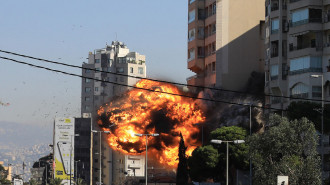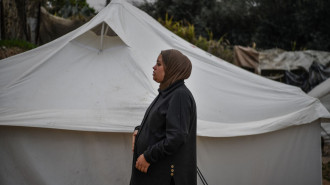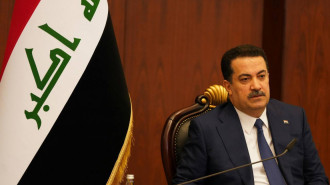Ayatollah Khamenei urges caution over Iran nuclear deal
Washington and London sought on Thursday to ease concerns over the Iran nuclear accord as the country's supreme leader warned that major powers are not to be trusted over its implementation.
As part of an international charm offensive, British Foreign Secretary Philip Hammond was to meet Israeli Prime Minister Binyamin Netanyahu, who strongly opposes the landmark accord struck on Tuesday in Vienna between Iran and world powers led by Washington.
| Iran still poses challenges to our interests and values - US President Barack Obama |
Netanyahu has condemned it as a "historic mistake" and hinted at a possible military response.
In Washington, Secretary of State John Kerry was to hold talks with Saudi Foreign Minister Adel al-Jubeir, whose government has also been alarmed about the deal with its regional rival.
President Barack Obama confronted the critics head-on on Wednesday, saying they were at odds with "99 percent" of the world and had failed to offer any real alternative.
As the freshly-inked deal was put to members of the UN Security Council, a combative Obama said opponents at home and abroad had offered only a path to war.
"If 99 percent of the world community and the majority of nuclear experts look at this thing and they say this will prevent Iran from getting a nuclear bomb, and you are arguing either that it does not or that even if it does, it's temporary... then you should have some alternative," Obama said.
The issue is either resolved "diplomatically, through a negotiation, or it's resolved through force. Through war. Those are the options."
Obama's Republican rivals, who hope to scupper the agreement in a planned Congressional vote, have accused him of appeasement.
The president has said he will veto any attempt to block the deal.
The agreement, struck after two years of tough negotiations, aims to roll back Iran's nuclear programme in return for lifting sanctions that have crippled its economy.
Obama also addressed the concerns of Saudi Arabia and other Sunni Gulf states that the accord legitimises what they see as Iranian interference in the oil-rich region.
The agreement would not end "profound differences" with the Shiite-majority Islamic republic, he said, stressing that their alliances with Washington would remain unchanged.
"Iran still poses challenges to our interests and values," the US leader told reporters, citing "its support of terrorism and its use of proxies to destabilise parts of the Middle East."
'Not trustworthy at all'
While Obama defended the deal in Washington, Iran's supreme leader Ayatollah Ali Khamenei warned President Hassan Rouhani that "some" world powers are not to be trusted in implementing it.
In a letter to Rouhani, Khamenei, who had the final word on the agreement, congratulated Iran's negotiators for "their tireless efforts".
Bringing the talks to a close was a "milestone", Khamenei said, but the agreement requires "careful scrutiny" before it is approved.
Rouhani "must be concerned about possible violation of commitments by the other parties and close paths to it," the leader wrote in the letter, published on his website.
"You are well aware that some of the six states participating in negotiations are not trustworthy at all," Khamenei said.
He did not specify which of the six countries - Britain, China, France, Russia and the United States plus Germany -- he was referring to.
Throughout the almost two years of negotiations that culminated in the Vienna agreement after a final 18-day stretch of almost round-the-clock talks, Khamenei often spoke of his distrust of Washington.
Iran has always denied Israeli and Western charges of seeking an atomic weapon, insisting its nuclear programme is for peaceful energy and medical purposes only.







 Follow the Middle East's top stories in English at The New Arab on Google News
Follow the Middle East's top stories in English at The New Arab on Google News


